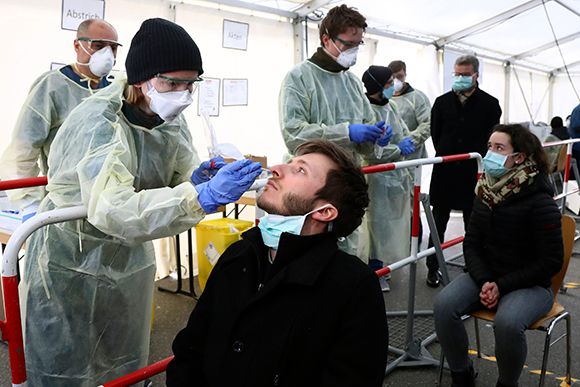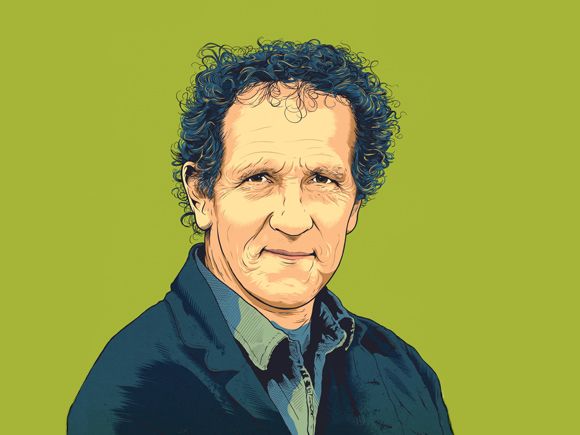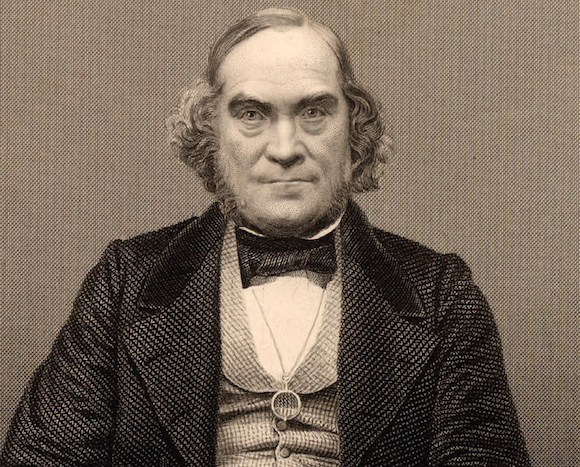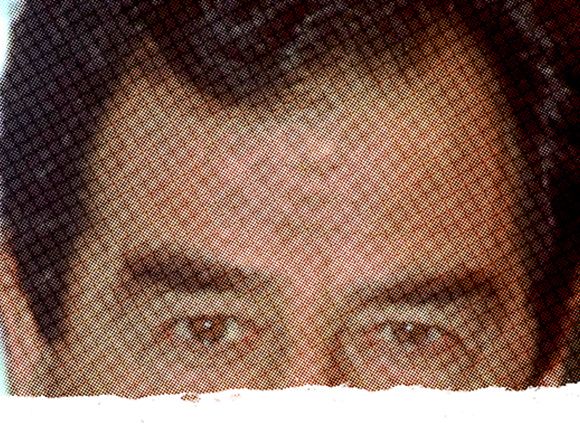
Back in the summer we published our list of the world's top 50 thinkers for the Covid-19 age and asked you—our readers—to vote for your favourite. Almost 20,000 of you cast your vote and in our October issue we crowned the winner: Kerala health minister KK Shailaja.

Crowned the Think Tanker of the Year at our awards ceremony earlier this month Anand Menon, writing here with his UK in a Changing EU colleague Jill Rutter, explored the winding route that Britain has taken on its journey towards leaving the European Union in our December issue cover story.

3. Why do so many teenage girls want to change gender?
In the last 10 years, there has been an extraordinary increase in teenagers seeking to transition from female to male. Emma Hartley asks what's behind it—and with the help of whistleblowers asks whether the NHS has been too quick to prescribe so-called puberty blockers. In November, six months after this piece came out, a court concluded that such treatments for under-16s were "experimental." They have subsequently been suspended.

4. Britain's next great health crisis is already here
By April, experts were already predicting that the Covid-19 crisis would precipitate another disaster in public health. Interest in mental health has exploded in popularity in recent years, with everyone from former politicians to the royal family weighing in. However, Emily Reynolds writes, that rhetoric has occurred alongside a gutting of NHS mental health services, which even at the best of times are over-stretched. It's good to talk about mental health—but, now more than ever, we should start talking about going beyond talking.

5. 5am starts, poverty wages and no running water—the grim reality of "picking for Britain"
This summer Prince Charles called on the public to channel their patriotism and "pick for Britain," amid reports that a Brexit-induced exodus of EU workers had left fruit and vegetables to rot on UK farms. Herbie Russell joined Pick for Britain on a strawberry farm but did not find any magisterial glory. He scrutinises the myths propounded by the programme—that one can earn a decent wage through "piece work," for example—and the labour rights issues that haunt the sector. "When I started there were 30 Brits working in this field," he writes: "a month later there are just five of us."

6. Inside Germany's Covid-19 testing masterclass
As coronavirus spread through Europe in the first half of the year, leading to country-wide lockdowns across the continent, politicians sought to get testing in place to stem the growing infection rate. Germany was hailed as one of the finest examples and Stephen Buranyi found out why.

7. How Monty Don became the nation's gardener
In our July issue Alice Vincent profiled the host of Gardeners' World to try and uncover why Monty Don has become a bit of a national treasure.

8. He was the most revered philosopher of his era. So why did GE Moore disappear from history?
He was among the most celebrated philosophers of his day, venerated in Cambridge (where a young Bertrand Russell worshipped him like a God) and revered in literary London. Today GE Moore’s reputation is very different. Ray Monk asked what the fall from such exalted heights can tell us about the intellects we choose to celebrate. What determines someone’s place in the history of ideas?

9. What the Economist doesn't tell you
It speaks with the "voice of God." But that imperturbable, even smug, self-confidence in an elite liberal worldview has been shaken by our populist moment, argues Adam Tooze in this entertaining piece.

10. How Bernardine Evaristo won the Booker
She was the first black woman to take home one of the world's most prestigious literary awards. In the first in-depth profile of Bernardine Evaristo, Rebecca Liu talks to the writer about her years of being ignored by the literary establishment and what minority voices need to do to get heard.
***
We couldn't resist adding some of our favourites from this year to the list as well. There was much debate (over Zoom and WhatsApp, of course) as we narrowed it down to just five staff picks from this extraordinary year. Eventually, we settled on these:

1. Think Jacques Derrida was a charlatan? Look again
In our November issue, long-time Prospect contributor Julian Baggini reviewed a new biography of Derrida and argued we should reappraise the enigmatic French philosopher's work.

One of several great pieces written this year by our very own Sameer Rahim, all while judging the 2020 Booker Prize. Here, he tells the story of a childhood holiday gone wrong as he and his family were held in captivity by Saddam Hussein.

3. The struggles of Martin Amis
Miranda France reviewed Martin Amis's latest (last) novel in our October issue, but it all felt just a bit too familiar.

4. The radical uncertainties of coronavirus
John Kay and Mervyn King jointly penned this essay back in April about a principle that has become all too familiar this year: radical uncertainty. Often we have felt like we know something, but not enough to act with confidence.

Hephzibah Anderson is another long-time Prospect contributor who has written a series of great essays for us in 2020, but there was only one that felt right to include in this year of remote working, Zoom meetings and webinars... are we witnessing the end of the office?












